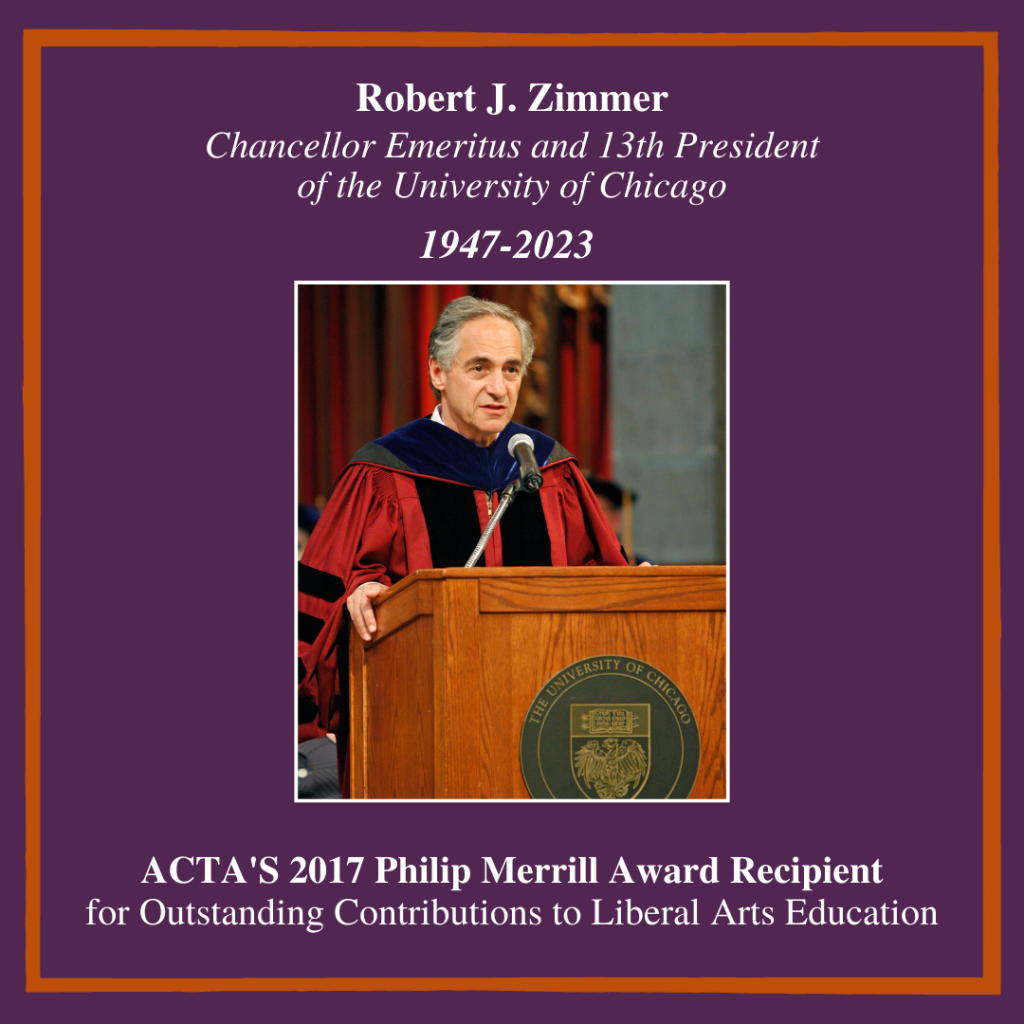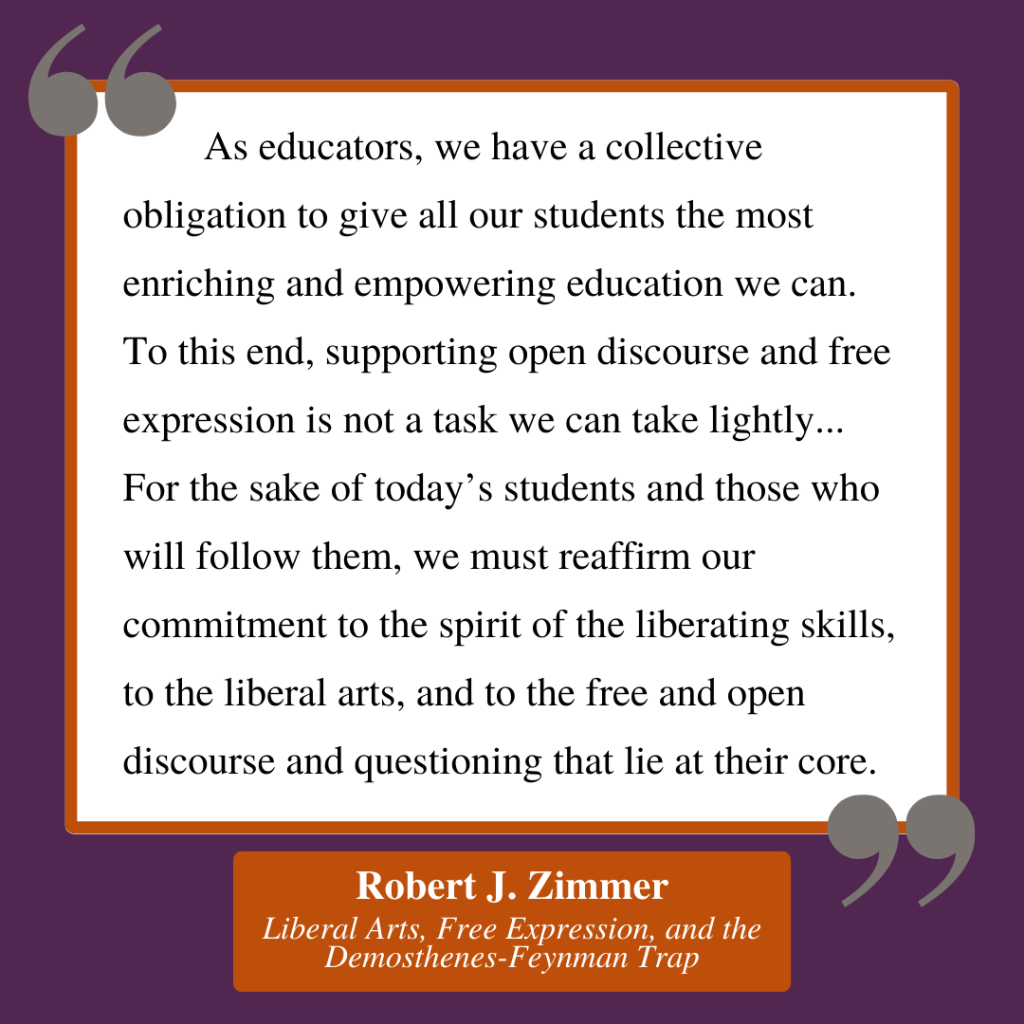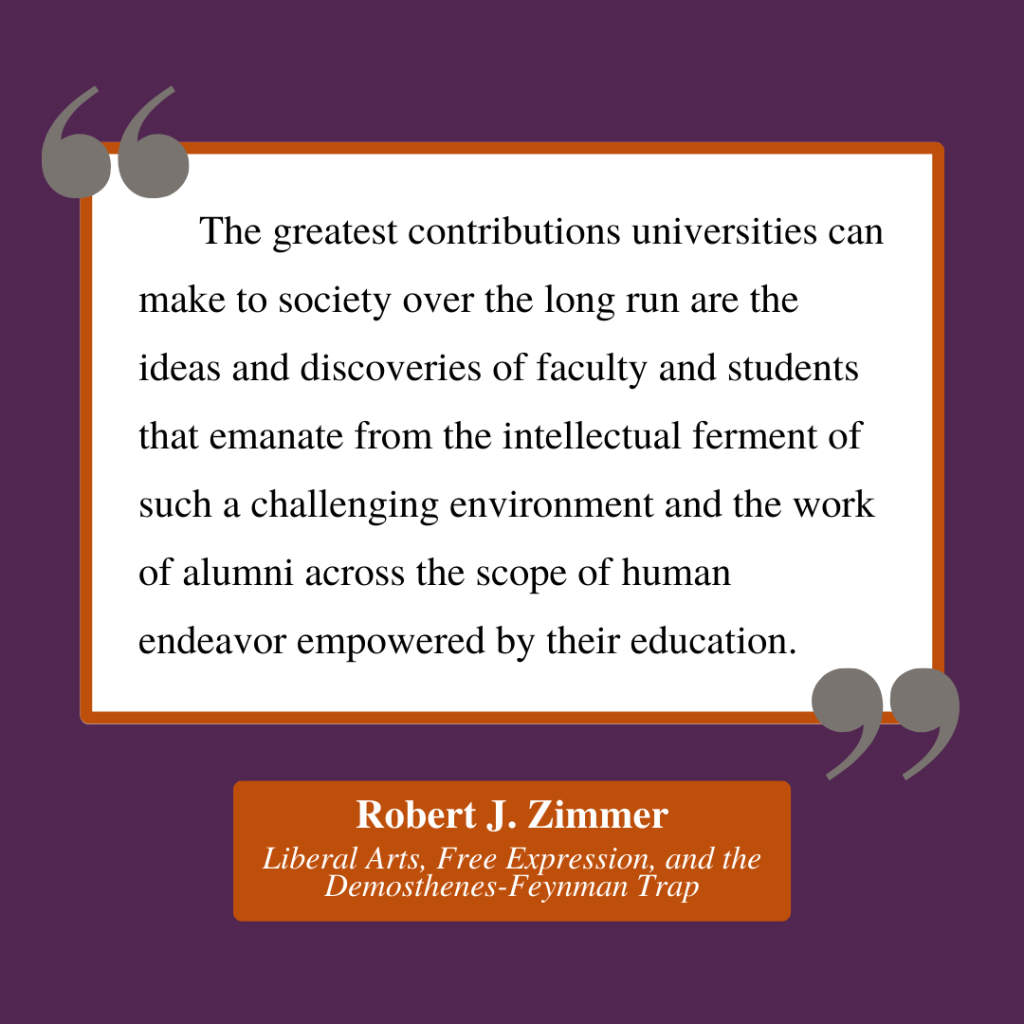ACTA mourns the death of Robert J. Zimmer, an extraordinary ACTA friend and a hero of the American academy. His career as a scholar, teacher, and the president of the University of Chicago for 15 years secures his place among the greatest American educators: his work to revive and protect freedom of expression in higher education will continue to have a profound and positive impact on the values of our nation. In calling us to the principles of intellectual openness, intellectual integrity, and the scholar’s duty of fair-mindedness, he showed us a path forward. The greatest tribute we can give to his memory is to stay unwaveringly on that path.
His career exemplified that union of cutting-edge research in his field, dedicated and careful teaching, an uncompromising commitment to intellectual freedom, and an embrace of the world of learning that vigorously included the humanities as well as his own mathematical specialty. His work on ergodic theory in combination with the theories of Sophus Lie gave birth to what is now known as the Zimmer Program. He is the author of two books and over 80 research articles. One of his University of Chicago doctoral students, William Dembski, remembered his plain- speaking commitment to deep learning that transcended the mechanical and his unwillingness to accept anything short of excellence. As provost at Brown University from 2002 to 2006, he spearheaded the launch of the Center for Computational Molecular Biology and also the Cogut Institute for the Humanities. Under his leadership as president of the University of Chicago, applications to the university more than tripled, and the university drew numerous large financial gifts that vastly increased its programs across many academic disciplines.
In October 2017, ACTA had the privilege of presenting to President Zimmer its Philip Merrill Award for Outstanding Contributions to Liberal Arts Education. Bret Stephens, Jonathan Cole, and David Rubenstein gave tribute speeches before the award. His acceptance speech bore the intriguing and evocative title: “Liberal Arts, Free Expression, and the Demosthenes-Feynman Trap.” He captured in it wisdom ancient and modern that admonishes us not to capitulate to the easy and lazy path of self-deceit in our understanding of the world. He reminded us that the liberal arts can train us to work meaningfully with complexity, but only in an environment in which the discomfort of challenging new ideas is a value to be prized and defended. Among the monuments to his values, of course, are the Chicago Principles on Freedom of Expression, an initiative that he put into motion and which remains the gold standard for colleges and universities that understand the imperative of unfettered freedom to explore, question, and challenge.
President Zimmer was a man of great soul and generosity. When University of California (UC)–Davis Distinguished Professor of Mathematics Abigail Thompson courageously opposed the initiative at the University of California to screen candidates for faculty positions on the basis of their fealty to UC’s definition of diversity and denounced it as a recrudescence of the infamous loyalty oath, Robert Zimmer immediately volunteered to deliver a tribute speech in her honor. Already severely afflicted by the cancer that ended his life, he made the trip to Washington, DC, to praise his fellow mathematician at ACTA’s Hero of Intellectual Freedom award ceremony in 2020. It was the last time that Abigail and I and our ACTA friends had the joy of seeing him. He was cheerful and, as always, focused on making every hour a meaningful contribution to human progress.
Not only soldiers and statesmen appear in the vision of the Elysian Fields, the abode of the Blessed, described in Virgil’s Aeneid (a poem magnificently translated by President Zimmer’s wife, Shadi Bartsch-Zimmer). In Virgil’s vision, there also are those who made life better through their discoveries and those who won a place through their good work in the memory of those who came after. Robert Zimmer is there. May he rest with the good and the righteous of all nations, b’gan Eden, in Paradise. He will continue to inspire us.


